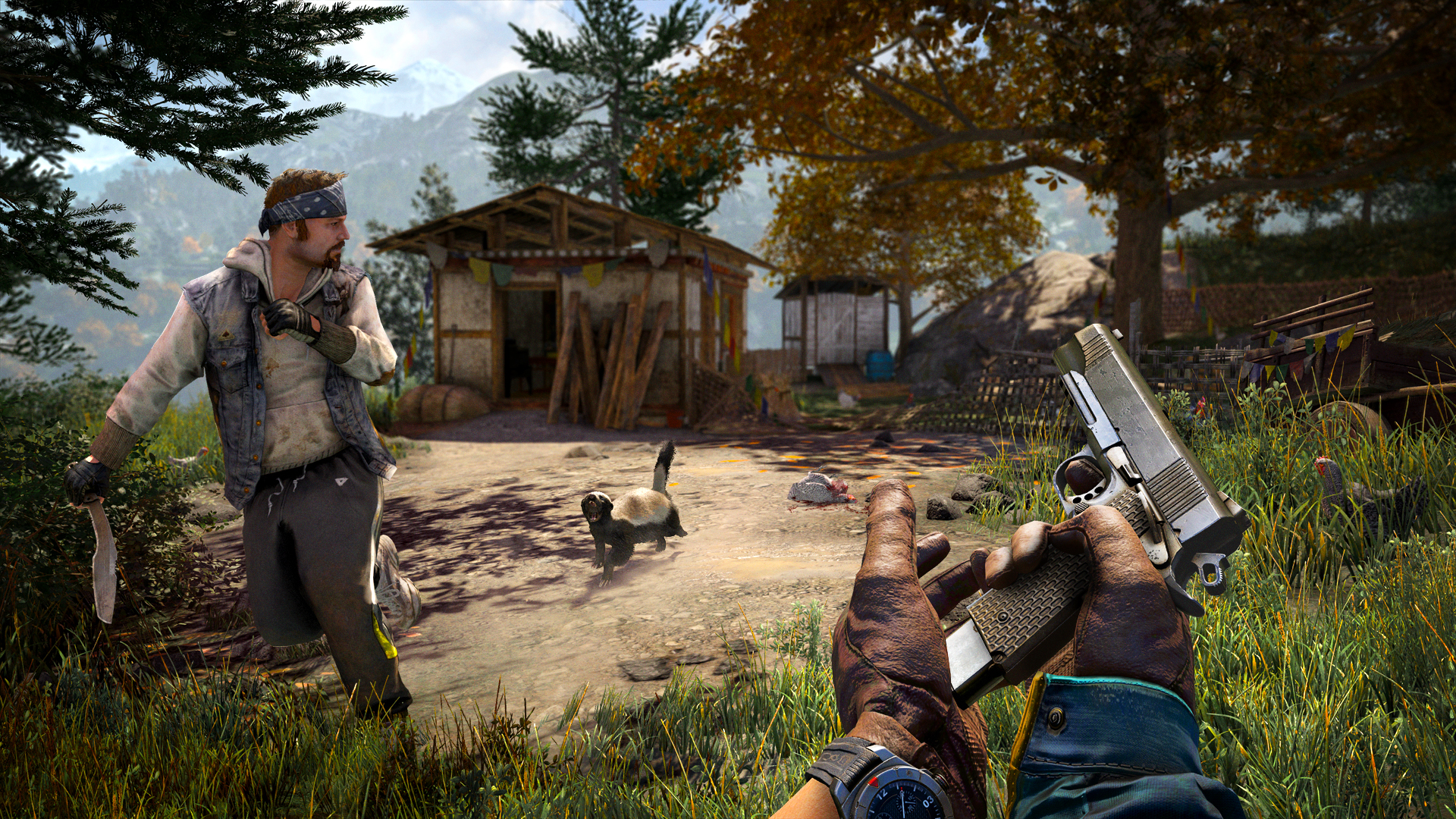How removing regenerating health brings tension and challenge back to modern gaming

Let me tell you a true story. While walking along a canal towpath one day in late 1999 I felt, like so many of us at the time, emboldened by the approaching turn of the millennium. “Anything is possible,” I said, marching right up to a swan who had made his home in a small pile of plastic carrier bags and soggy bits of cardboard. “The world belongs to me and me alone.”
As I reached out to stroke the swan, it swung around furiously and bit me, its razor-sharp beak slicing cleanly through my thumb. Bloodied and humbled by the attack, I retreated behind a bush for ten minutes to compose myself. It was there that I noticed my injury had already begun to scab over, cloddy red platelets curdling in the wound to protect my inside-meat.

My body was repairing itself before my very eyes. I was witnessing first-hand the biological ballet of regenerating health.
While a number of games have attempted to incorporate self-healing into their gameplay, it wasn’t until Halo: Combat Evolved in 2001 that the mechanic of waiting a short while for your health bar to refill began to take hold. Hit-points and health bars soon went the way of the dodo, devoured not by hungry Dutch idiots, but by a new generation of gamers’ innate fear of dying.
The problem

Regenerating health was quickly distorted beyond all reason. The Call Of Duty series popularised the mechanic, and now most games allow you to crouch behind a wooden crate or ancient Babylonian statue while your body eagerly pushes hot bullets back out of its smashed organs. Injuries that in reality would require an extended stay in an intensive care unit followed by years of painful rehabilitation – such as accidentally forward-rolling into a grenade when you meant to do a cool backflip away from it – are healed with a simple ten-second sit down.
Not only does this undermine the very serious matter of having your arms and legs blasted off by a giant explosion, but it makes modern shooters vastly less challenging. At any given moment in Gears Of War 4, for example, your tactical situation will be roughly identical to that of every other player who’s found themselves where you’re standing. You never have to consider that, because you got all shot to ribbons earlier in the level, you should adapt your strategy to survive.
The solutions

Like so many problems in games today, we can fix this simply by going backwards in time to a point when everything was better. You need only look at the recent Wolfenstein games, which use armour and hit-points as part of their retro aesthetic, to see how a dwindling health bar adds tension and challenge to a gun battle. Games with limited health force you to fully risk-assess your current situation before choosing to cartwheel towards the most dangerous-looking man in the room or crawl around in the shadows breaking everybody’s necks.
Weekly digests, tales from the communities you love, and more
Other games, such as Far Cry, have successfully merged auto-healing with perma-hurting, giving you smaller regenerating health chunks within a larger health bar that can be whittled down by an angry emu or charging rhino.

Look even further back in time, to when games came on vinyl records (or something), and we can steal even stranger solutions. Ghosts ‘n Goblins had all of your clothes fall off whenever you were hurt, an idea I’d like to see re-implemented now that graphics have improved to the point you can properly make out a space marine’s bionically enhanced junk. Sonic The Hedgehog could only take damage when he was juggling golden rings. And Mario would literally halve in size at the slightest provocation. Pathetic.
Regenerating health works, but it’s an unimaginative, tired and lazy way to heal yourself. Every idea outlined above sounds ridiculous, but they’re all inventive. Yet they’re left by the wayside for the least interesting idea of all. We should all live like the swan, which lives in fear of being touched, but relishes life all the more because of it.
This article originally appeared in Xbox: The Official Magazine. For more great Xbox coverage, you can subscribe here.
Steve Hogarty is a London-based freelance journalist covering games and technology. His bylines have appeared in publications including GamesRadar, The Independent, Yahoo, VICE, Eurogamer, and more. He is also the co-host of the pocast, Regular Features.



